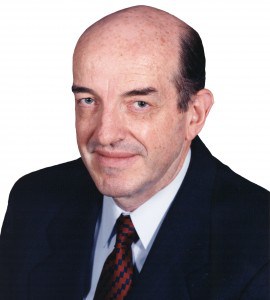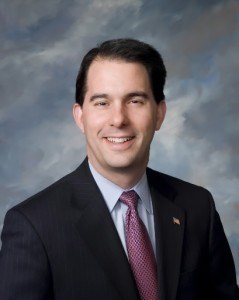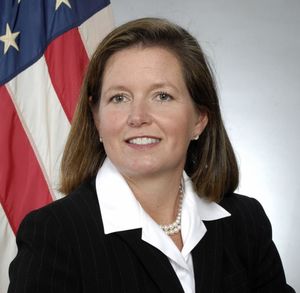The exit of Meredith Attwell Baker from her role as a Republican commissioner on the Federal Communications Commission to take a position as a top lobbyist at Comcast is raising eyebrows in Washington and anger in the rest of the country.
Comcast confirmed late today Baker will serve as their new senior vice president of government affairs, a title that can be considerably shortened to “lobbyist.”
The short span between March, when Baker was browbeating regulators over “taking too long” to review the Comcast-NBC merger she supported, and today’s announcement has surprised even some Washington insiders.
Often, those looking for a better paycheck in the private sector will start by working for a D.C. lobbying firm before directly accepting employment with a company whose multi-billion dollar merger deal they affirmed months earlier in their role as a regulator.
Tim Karr at Free Press called today’s announcement more food for the cynics:
With behavior like this it’s little wonder that American people are so nauseated by business as usual in Washington. Inside the Beltway the complete capture of government by industry barely raises any eyebrows. Outside of Washington, people of every political stripe have expressed near unanimous contempt for a system of government that favors powerful corporations at the expense of the many.
An opinion piece in the Los Angeles Times noted Baker’s move raises uncomfortable questions about how legislators and regulators make their decisions. “Are they acting in their constituents’ best interests, or are they burnishing their prospects for a high-paying job on K Street after they leave government?”
The New York Times expanded on Baker’s strong sentiment for the merger:
“The NBC/Comcast merger took too long, in my view,” Ms. Baker said on March 2 in a speech to a communications industry group. Noting that that time was similar to the length of other major merger reviews at the commission, she asked whether those reviews were preventing companies from trying to grow through acquisition.
“My concern is that you might walk away,” she told the communications executives, “and how many other consumer-enhancing and job-creating deals are not getting done today.”
Politico reported that Comcast’s gain was probably a loss for consumers:
“Sometimes the revolving door between government and private industry spins quickly and sometimes it’s on a rocket sled,” Dave Levinthal, communication’s director for the Center for Responsive Politics, told POLITICO. “This transition is as quick as it can possibly get.”
While Baker is not allowed to be an official lobbyist, Levinthal noted that she has many ways to be influential and lobby for her new company in a broader sense.
“It’s a big boon for Comcast,” he said. “They are getting somebody who has unbelievable government experience and know-how” in the communications space. Consumers, he noted, can’t afford to hire someone of a similar stature to advocate for them.
Comcast denied it approached Baker for a job until after their merger deal was approved. That defense only strengthens suspicions Baker’s vote made her an even more attractive candidate for the cable company, but most pundits guess she would have supported Comcast even without a job offer. Judging from the comment sections of most major media stories covering today’s events, consumers are unhappy. Some called Baker an opportunist, while others used the occasion to bash Republicans for their reflexive support of big cable and phone companies paying off with jobs at the companies they strongly supported while in government positions.
Considering a few former Democratic commissioners have also made a living working for the interests of big cable and phone companies, calling today’s events an exclusively Republican travesty would be wrong.
Baker will report to Kyle McSlarrow, who recently left the National Cable and Telecommunications Association, the cable industry’s top lobbying group, for his own new career at Comcast.


 Subscribe
Subscribe






